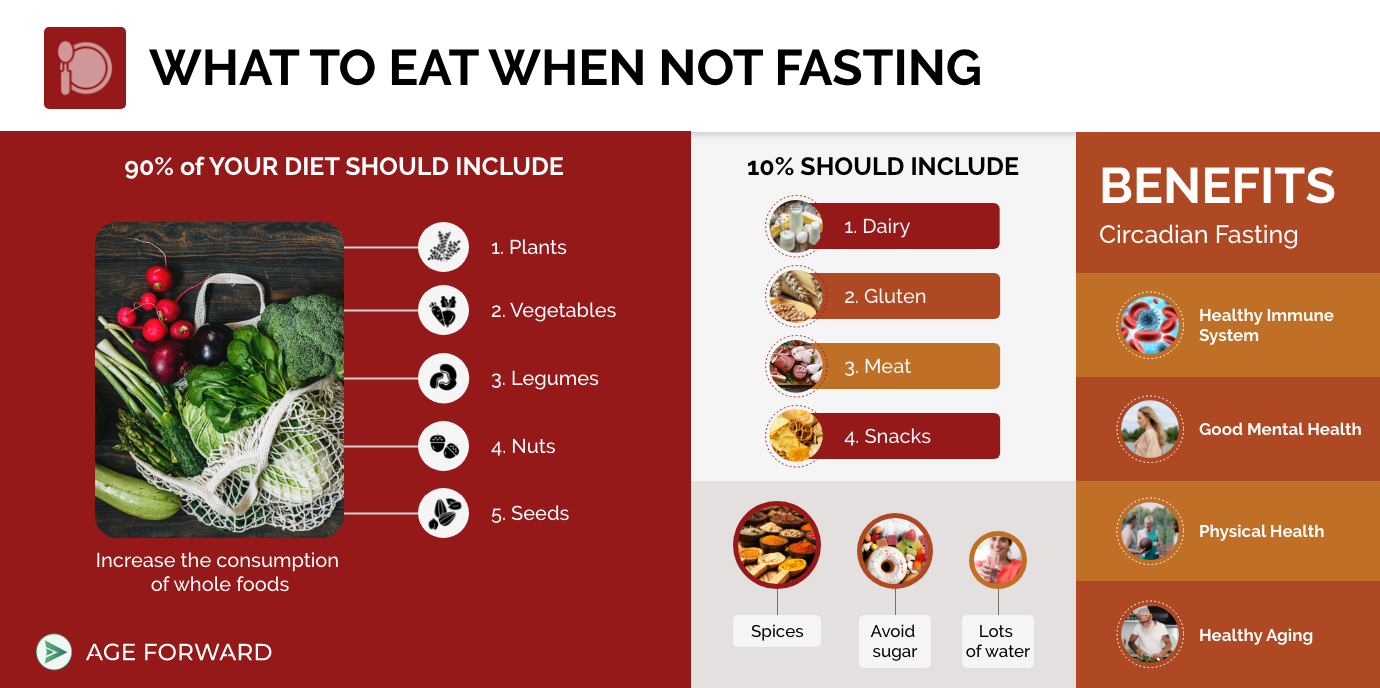Dr. Amy shares information about what and how you should be eating while you are not fasting.

Circadian Fasting and What to Eat for Optimal Health
By Dr. Amy Shah, MD and Nutrition Expert
Circadian fasting is a growing trend in the health and wellness community, with individuals abstaining from food during certain hours, typically 7 PM to 7 AM or 7 PM to 9 AM for 12-16 hours of fasting. While this practice has many benefits, the question remains: what should you eat to increase the positive effects of circadian fasting and circadian syncing?
According to Dr. Shah, gut health plays a significant role in mental and physical health, as well as aging. The bacteria in our gut communicate with our immune system and can impact inflammation, aging, and overall well-being. To maintain a healthy gut, it is important to consume prebiotic foods, such as vegetables like asparagus, garlic, onions, and artichokes. These foods provide nourishment for the good bacteria in our gut and can lead to the production of short-chain fatty acids, which have anti-inflammatory and anti-aging benefits.
Dr. Shah recommends making 90% of your diet whole foods and plants, with the remaining 10% for dairy, gluten, traditional snacks, and small amounts of meat. Sugar, on the other hand, should be limited as it has the potential to turn off the anti-aging effects of intermittent fasting. Instead, consume protein after your fast and hydrate with plenty of water and anti-inflammatory spices like turmeric, cinnamon, black pepper, and ginger.
In conclusion, incorporating a balanced diet with prebiotic foods, healthy fats, and limited sugar and protein can enhance the benefits of circadian fasting and promote optimal health.







